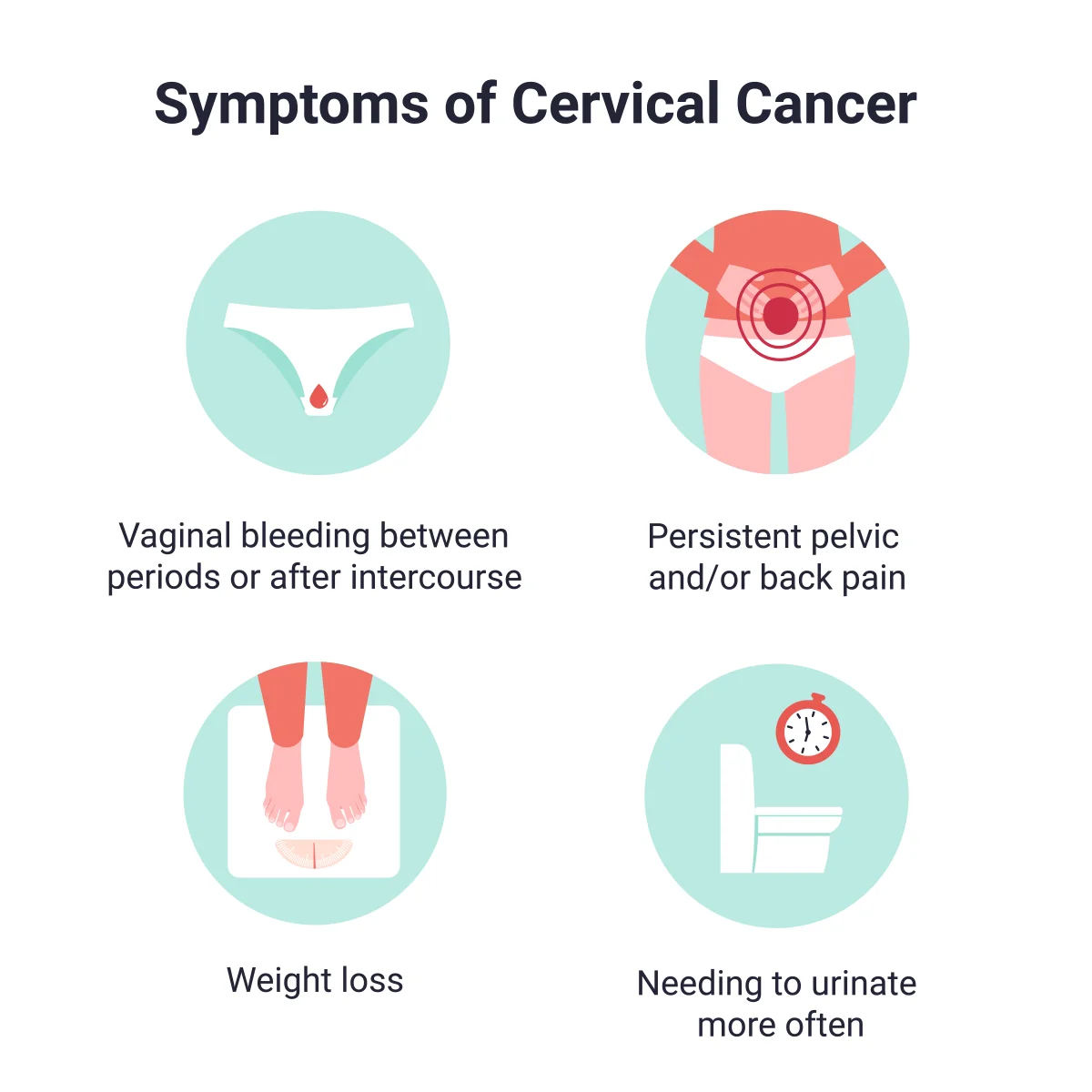Cervical cancer
Find a cancer specialistCervical cancer was once a leading cause of death for women in the U.S. With advances in early detection screenings and vaccines, cervical cancer is now one of the most preventable types of cancer.
If you’re diagnosed with cervical cancer, we offer comprehensive diagnostic testing, treatment options and lifelong support. With locations close to home, we’re here for you during every step of your cancer journey.
Find an Advocate Cancer Institute near you
What is cervical cancer?
Cervical cancer is a type of gynecologic cancer. It develops in the cells of your cervix, which is the lower part of your uterus that connects to the top of the vagina.
When the cells of your cervix change and become abnormal, this is known as a precancerous condition called dysplasia. If found early, dysplasia can be treated – stopping the cells from eventually turning into cancer.
Early detection can greatly improve your cervical cancer survival rate. Screenings to know if you’re at high risk and regular PAP smears (PAP tests) help detect precancerous conditions.
You may be considered high risk if you have certain strains of human papillomavirus (HPV), a common viral infection almost all sexually active people have at some point. Getting the HPV vaccine is an important step in prevention as HPV is the primary cause of cervical cancer.
Learn more about cervical cancer screenings
Types of cervical cancer
There are two main types of cervical cancer – squamous cell carcinoma and adenocarcinoma. These types are based on the cells they originate from on the surface of your cervix. About 90% of cervical cancers are squamous cell carcinomas.
Cervical cancer stages
If you’re diagnosed with cervical cancer, your doctor will determine how far the cancerous cells have spread in your cervix and other areas of your body. This is known as staging.
- Stage 1 cervical cancer: Cancer is confined to the cervix (original site).
- Stage 2 cervical cancer: Cancer is in the original site and has spread to the uterus but hasn’t spread to the lower part of the vagina or walls of the pelvis.
- Stage 3 cervical cancer: Cancer is in the original site and has spread to the lower part of the vagina, walls of the pelvis and possibly nearby lymph nodes.
- Stage 4 cervical cancer: Cancer has spread from its original site to nearby and distant organs and tissues in the body, like the bladder, rectum, bones or lungs.
Cervical cancer symptoms

There generally aren’t any early signs of cervical cancer. Routine pelvic exams and Pap smears can detect precancerous conditions that often can be treated before cancer develops.
The most common cervical cancer symptom is abnormal vaginal bleeding, such as bleeding after intercourse, between periods or after menopause.
Other symptoms of cervical cancer include:
- Heavy, long lasting periods
- Pelvic pain including pain during sex
- Increased vaginal discharge
- Weight loss
- Frequent or painful urination
How do you know if you have cervical cancer?
Annual screenings with your primary care provider or gynecologist check for abnormal cervical tissue and cervical cancer risk factors, including infections such as HPV. These visits are the first line of defense against cervical cancer.
If you have a positive screening test, you’ll follow up with diagnostic tests with your provider or specialist to confirm or deny cervical cancer.
How long can you have cervical cancer without knowing?
Cervical cancer grows slowly. Since stage 1 cervical cancer symptoms are very rare, you may not know that you have cancer for months or even years.
Advanced stage cervical cancer symptoms can cause problems that prompt you to visit your doctor, leading to a diagnosis.
Diagnosing cervical cancer
Pap tests and HPV tests are commonly used to detect any abnormal cervical changes. A biopsy of abnormal cells from your cervix may also be taken to confirm a cervical cancer diagnosis. This also helps your doctor determine your cervical cancer type and stage, which helps determine the best treatment plan for you.
Learn more about how cervical cancer is diagnosed
Cervical cancer treatments
If you’re diagnosed with cervical cancer, rest assured you have some of Illinois’ best experts by your side. Your multidisciplinary team will work closely with you to create a personal cancer treatment plan, which may include the latest cervical cancer surgery techniques, radiation or chemotherapy to remove or destroy cancerous cells.
Learn more about treatment for cervical cancer
Support during cancer care
We’re committed to caring for the whole you and providing the resources you and your loved ones need to manage a cervical cancer diagnosis. You’ll find a full range of free or low-cost cancer support services – from education to rehabilitation, nutritional to spiritual counseling support groups and more empowering programs.
Get care
We help you live well. And we’re here for you in person and online.